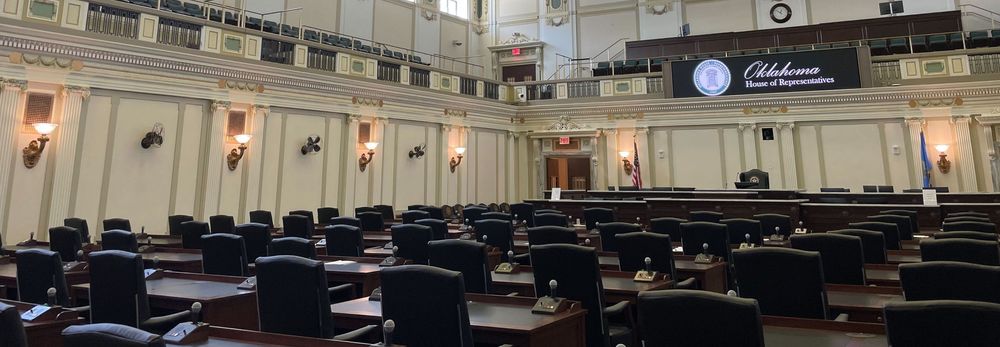House Bill 1955 has successfully moved through the House and Senate. The bill will eliminate the state’s grocery tax, an issue that has garnered bipartisan support. Next, the legislation will go to the Governor’s desk. It will take effect 90 days after the legislative session ends.
“Senate Democrats have supported and continue to support cutting the state portion of the sales tax on groceries, giving relief to hard-working Oklahomans and their families,” says Democratic Leader Kay Floyd.
Cutting the tax on groceries is something that Gov. Stitt has voiced support for in the past.
The bill was first proposed last year and failed to make it out of committee. Stitt was quick to boast about the tax cut’s success:
“Today, we get to fulfill a promise to all four million Oklahomans and pass the largest single-year tax cut in Oklahoma history. Cutting the grocery tax means relief for all Oklahomans.” He went on to say, “I’m going to always fight for limited government and lower taxes, and I will still advocate to get us on [a] path to zero income tax. This is a victory I’m excited to celebrate.”
Oklahoma Governor Kevin Stitt
Senate Pro Tempore Greg Treat said in a press release that this is the only tax relief the Senate will be seeking this year. “To ensure state services and recent critical investments in education and infrastructure remain intact in the short term, there is no way to do more at this time,” Treat stated.
Road to Lower Taxes
Currently, the state grocery tax rate is 4.50%. Oklahoma is 1 of 13 states that implement a grocery tax. Stitt’s agenda during his time in office has focused on cutting taxes. He has put significant focus on becoming a “top ten state,” something he believes will make Oklahoma a national contender in the corporate world. One way he wants to accomplish this is by decreasing not only grocery tax but income tax as well.
During the State of the State Address, Stitt referenced the growing population of Florida and how the state lacks a personal income tax. He said, “If more government spending was the answer, Florida would be falling apart. The opposite is true.” However, Florida has a sales tax of 6%, while Oklahoma’s is 4.5%. Florida also has a more substantial visitor rate, with over 135 million people visiting the state in 2023. That’s in stark contrast to Oklahoma’s 18.3 million in 2022.
Other Tax Cuts
A week before the regular legislative session was set to begin, Stitt called for a special session. The reason for this call was because he wanted to decrease personal income tax by 0.25%. “From day one, I’ve called on the Legislature to give Oklahomans a much-deserved tax cut,” said the Governor.
This drew criticism from legislators. Senators gaveled in and out of the special session without taking action on the proposed tax cut. House representatives spent longer discussing the tax cut and ultimately passed it with a 71-20 vote.
“Another special session when we’re about to go into session… feels a little bit much,” said Rep. Mauree Turner. “I believe he’s got friends in the legislature that would run a piece of legislation like that for him,” they continued.
Stitt has reiterated that he believes lowering taxes will give Oklahomans a pay raise. However, the state minimum wage has been $7.25 since 2008.
Related Stories
Grocery Assistance
Food insecurity is an issue that impacts 1 in 7 Oklahoma residents. Additionally, 1 in 5 Oklahoma children faces hunger.
At the beginning of 2024, Governor Stitt opted out of a federal summer food program for students on free and reduced lunch. The program is designed to give an extra $120 per child to help with grocery costs during the summer months.
When asked about this decision, the Governor’s office told The Oklahoman that Stitt had uncertainty as to how the program would be administered.
Two tribal nations within Oklahoma have opted in for the assistance program. The Cherokee and Chickasaw nations have accepted the federal program, and students who go to school and live on their reservations can apply.
Cherokee Nation Principal Chief Chuck Hoskin Jr. released a statement on the decision to accept the program. “The Cherokee Nation is committed to ensuring children have access to nutritious food this summer because we know how vital food security is for families and overall health and wellness.” He continues, “It’s regrettable and bewildering that the state of Oklahoma is abandoning federal funding a losing an opportunity to address child food security.”



Leave a comment